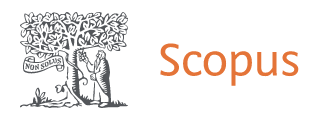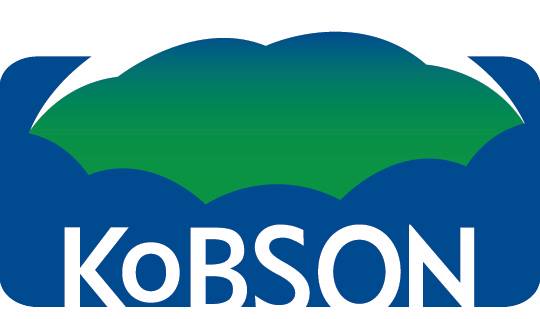DOI: 10.5937/jaes0-53547
This is an open access article distributed under the CC BY 4.0

Volume 23 article 1254 pages: 82-89
This study investigates the application of real-time Internet of Things (IoT) monitoring and predictive algorithms for optimizing liquid palm sugar production. By focusing on the prediction of Brix values, which indicate sugar concentration, the research aims to enhance process efficiency and product quality. Traditional manual methods of measuring Brix levels are often time-consuming and prone to inaccuracies. To address this, the study integrates IoT-based sensors that collect data on temperature, pressure, and weight during the evaporation process, using a linear regression model to predict Brix values in real time. Experimental results show that weight ratio-based predictions align well with manual refractometer readings, particularly in the early stages of production. However, deviations at higher Brix levels were noted, prompting the introduction of polynomial regression for improved accuracy. These findings suggest that IoT systems combined with predictive models offer a significant advancement in sugar production monitoring, reducing manual interventions and enhancing process control. The research contributes to the growing body of work on IoT applications in food production, particularly for liquid palm sugar processing, and provides a novel approach to addressing current challenges in Brix measurement.
This research was funded by the Indonesian Directorate General of Higher Education (DIKTI) under the 2024 Regular Fundamental Research Grant scheme, with contract number B/761/UN43.9/PT.00.03/2024.
1. Temilade Abass, Michael Alurame Eruaga, Esther Oleiye Itua, James Tabat Bature. Advancing Food Safety Through Iot: Real-Time Monitoring and Control Systems. Int Med Sci Res J. 2024;4(3):276–83. https://doi.org/10.51594/imsrj.v4i3.919
2. S. Jabbar, R. Choudhary, Zanib A, Shiekh S, G.Abbas, Choudhary NR. Securing Public Health: Iot and Big Data in Food Safety Traceability. Pak J Sci. 2024;76(01):141–53. DOI:10.57041/pjs.v76i01.1109
3. Jaywant SA, Singh H, Arif KM. Sensors and Instruments for Brix Measurement: A Review. Sensors. 2022;22(6):1–20. DOI:10.3390/s22062290
4. Ahmed M, Ahmed Taha G, Ibrahim khalil, Mohamed M, Zeen Elabedeen H. Evaluation of Digital Brixmeter Performance for Brix Measurement In Raw Sugar Solution. JES J Eng Sci. 2022;0(0):0–0. DOI: 10.21608/jesaun.2022.115375.1108
5. Srikaeo K, Sangkhiaw J, Likittrakulwong W. Productions and functional properties of palm sugars. Walailak J Sci Technol. 2019;16(11):897–907. https://doi.org/10.48048/wjst.2019.5323
6. Jaywant SA, Singh H, Arif KM. Low-Cost Sensor for Continuous Measurement of Brix in Liquids. Sensors. 2022;22(23):1–14. https://doi.org/10.3390/s22239169
7. da Costa TP, Gillespie J, Cama-Moncunill X, Ward S, Condell J, Ramanathan R, et al. A Systematic Review of Real-Time Monitoring Technologies and Its Potential Application to Reduce Food Loss and Waste: Key Elements of Food Supply Chains and IoT Technologies. Sustain. 2023;15(1). https://doi.org/10.3390/su15010614
8. Chinmoy Nath, Mohit Singh, Uday Goswami, Sahil Bisht, Ms. Monika Kaushik MUS. IOT Based Food Monitoring System. Int J Resesarch [Internet]. 2024;12(5):1–23. Available from: www.ijraset.com https://doi.org/10.22214/ijraset.2024.61907
9. Gomes V, Mendes-Ferreira A, Melo-Pinto P. Application of hyperspectral imaging and deep learning for robust prediction of sugar and ph levels in wine grape berries. Sensors. 2021;21(10). https://doi.org/10.3390/s21103459
10. Wiyono S, Fachry MS, Abdullah S, Sidik D, Erwin. The Effect of Vacuum Pressure on the Quality of Liquid Palm Sugar Resulting From the Vacuum Evaporation Process. Proc Conf Broad Expo to Sci Technol 2021 (BEST 2021). 2022;210(Best 2021):453–5. https://doi.org/10.2991/aer.k.220131.070
11. Nawi NM, Chen G, Jensen T. Visible and shortwave near infrared spectroscopy for predicting sugar content of sugarcane based on a cross-sectional scanning method. J Near Infrared Spectrosc. 2013;21(4):289–97. https://doi.org/10.1255/jnirs.1060
12. Makarkina M, Gruner L, Vetrova O, Matnasarova D. The accumulation of sugars and organic acids in blackberry fruit in the conditions of Сentral Russia. BIO Web Conf. 2021;36:1–6. DOI:10.1051/bioconf/20213602006
13. Gunawan W, Maulani RR, Hati EP, Awaliyah F, Afif AH, Albab RG. Evaluation of Palm Sap (Neera) Quality (Arenga pinnata Merr) in Processing of House Hold Palm Sugar (Case Study on Aren Farmers in Gunung Halu Village, Gunung Halu District, West Bandung Regency). IOP Conf Ser Earth Environ Sci. 2020;466(1):0–8. DOI 10.1088/1755-1315/466/1/012001
14. Kusuma RA, Karyadi JNW, Rahayoe S. Design of a low-cost IoT-based data logger for monitoring the palm sugar drying system using ESP32 and Modbus/MQTT conversion. IOP Conf Ser Earth Environ Sci. 2024;1386(1). DOI:10.1088/1755-1315/1386/1/012025
15. Abo-Elwafa A, Galal M, Nosier H, Mohamed A. Correlation and Regression Analyses for Cane and Sugar Yields Across Their Components under Bud Chips and Conventional Planting Methods in Sugar Cane. Egypt Sugar J. 2021;16(0):1–25. https://doi.org/10.21608/esugj.2021.207803
16. Erwin E. Investigation Effect of Liquid Arenga Sugar ’ s Evaporation Temperature under Vacuum Pressure. 2024;13:95–100. https://doi.org/10.22101/jrifst.2023.382932.1432
17. Kurniawan T, Jayanudin J, Kustiningsih I, Adha Firdaus M. Palm Sap Sources, Characteristics, and Utilization in Indonesia. J Food Nutr Res. 2018;6(9):590–6. DOI: 10.12691/jfnr-6-9-8






